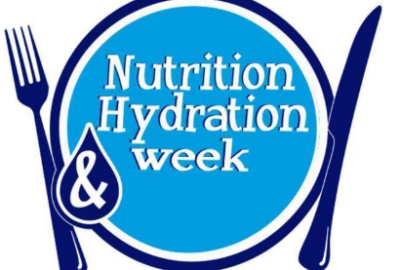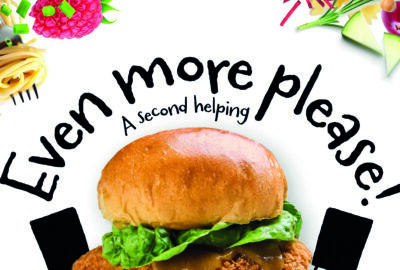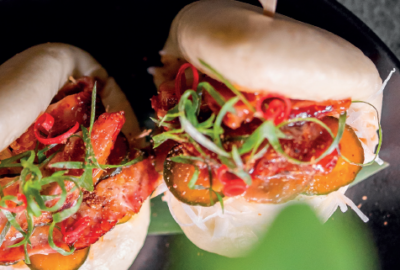The journey our food undertakes has increasingly been in the spotlight as consumers become more aware of what they are eating, how it impacts the environment and how both workers and animals are treated. This month’s panel of experts tell us how their businesses are putting provenance and sustainable practices first.
JONNY WRIGHT
Head Chef, Gleneagles Townhouse & The Spence
From the conception of The Spence and creating the identity of the restaurant, having as many local suppliers onboard was our number one priority and ensuring we were celebrating simplicity and the seasons. We get to work with some fantastic suppliers around Scotland. We get some of the best beef in Scotland and fantastic fish and shellfish including Gigha halibut, which is sustainably farmed on the west coast, we serve this simply chargrilled with sea greens and preserved lemon made in house.
DAN BURRELL
Executive Chef at The Montagu Arms, New Forest
Food provenance, sustainability, traceability, and ethical produce is really important to us as a business – our brand pillars are built on it. With rising food costs also playing a part in how we now purchase, we have to be really considered in how we source and utilise every part of the ingredient to minimise waste. We get amazing tomatoes from the Isle of Wight, chalk stream trout from the River Test, sparkling wine from Alresford, Game from the Beaulieu Estate, herbs and vegetables from our own garden… to name a few. Our Noble Bee Honey Cake showcases the Noble Bee Honey, which is exceptional quality, award-winning New Forest honey from hives located at the mouth of the Beaulieu River, just a couple of miles from the hotel. The single origin honey is 100% natural, raw and unprocessed, and the honey cake is perfectly paired with home-made ice cream, flavoured with chamomile grown in the Montagu Garden.
NICK YUNG
Head Chef, Straits Kitchen, Pan Pacific London
For Straits Kitchen, we source a lot of our ingredients from Asia, but our meat and seafood are sourced locally here in the UK. We are driven to use locally sourced produce where possible as it’s so fresh, having been picked and sold within a day or two, and to support local farmers and other producers. We use a lot of lobster on our menu, in dishes such as our Native Lobster Nonya Laksa, for which we use native lobster sourced from Scotland. Scotland’s coastline and nutrient-rich sea create an ideal habitat for lobsters to thrive, with the cold, clean waters providing the perfect conditions for the lobsters to grow slowly, developing a firm, succulent meat unrivalled in taste and texture.
CALLUM GRAHAM
Head Chef at Bohemia, Jersey
We try to source locally where possible, as I think it gives our food and menus a story. I think we were one of the first to use ‘La Chasse Farm’ courgette flowers in Jersey – I remember we did a social post about how fantastic they are, and what we were doing with them, highlighting the farm, and the wife of the farmer commented on the post: ‘My husband’s courgettes! So proud’. I think building a relationship with local growers and producers is a fundamental part of being able to create exciting menus with the best produce. One of the most local dishes currently on our menu is the ‘La Chasse Farm’ Tomato Salad, served with Yellow Tomato & Scotch Bonnet Sorbet and Nasturtium. I also believe in using local artists for new plates and crockery to serve food on, really taking local to another level.
KIERAN TURNER
Group Hospitality Manager, Angus Grill & Larder
Since before we opened our doors in Jan 2022, our plan at Angus Grill + Larder was to showcase the great produce from our region. Our customers expect quality from us and working with local suppliers for ingredients like haggis for our Braveheart Burger ensures consistency. They love the fact that we are supporting other businesses in the area. Our menu changes twice yearly, in the spring and then again as we reach the autumn. It is augmented with weekly specials, which allow us to add and adapt to include seasonal produce, as well as minimising waste.
CALLUM HOUSTON
Owner, Forage
Seasonal produce and upcycled ingredients feature in our menu, including fried scallops with the roe dehydrated and turned into a seasoning salt, accompanied with potato scraps and a pea and wild garlic puree, as well as in-season strawberry mille-feuille, served with a light sorbet and flavourful foraged meadowsweet. The kitchen’s ‘waste-less’ ethos also sees excess cuts of high-quality fruits, vegetables and other foods such as coffee grounds carefully curated into flavour rubs and dressings, marmalades and vinaigrettes, through to pickled snacks and crisps. We also make home-distilled gins and vodkas flavoured with foraged fruits, delicious breakfast martinis, a rhubarb pulp-infused champagne, carrot-top and strawberry-top vodkas, as well as zesty kombuchas made from leftover blood oranges and pomegranate.
DEAN PARKER
Chef, Celentano
Local and seasonal produce is at the forefront of our menus at Celentano’s.
We’re lucky in that we have really loyal customers, and I think they like to taste locally sourced ingredients when they eat with us. Over the colder months, we work with a lot of winter veg. Celeriac is a favourite and is often highlighted in our vegetarian secondi, and used in the base of our ragu to make it feel more ‘wintery’. Even the cocktails on our bar menu are inspired by the seasons and feature seasonal garnishes and herbs from our garden. We’ve found we get fewer problems sourcing locally – as long as you are being creative with what is available.
LUKE RICHARDSON
Exec Chef, Climat
We use a couple of local farms for our vegetables at both restaurants. We don’t use local just for the sake of it, it must be really good quality. Which luckily the suppliers we use, are!
At Covino, we are super lucky that we are so small we can just change as and when. We get sent out a harvest list from the farmers every weekend, so we then know exactly what we have to play with for the week’s menu. Therefore, the menu is pretty fluid but varied with dishes such as whole monkfish tail with fennel choucroute & peppercorn sauce or ash baked beetroot.
KAREN HEAVY
Brand Manager, Kerrymaid
We’re proud that all milk used in our Kerrymaid dairy products is sourced and manufactured in Northern Ireland. Chefs can always be sure of the provenance of Kerrymaid creams in the kitchen, whether that be the Kerrymaid Double to whip up a dessert like the New York baked cheesecake, or Kerrymaid Single in a roasted vegetable frittata. The environmental impact on local ecosystems of producing ingredients is an important consideration for chefs and suppliers, which is why all the palm and coconut oil we use is sustainably sourced, with the palm oil RSPO certified, minimising its impact and maintaining a supply chain for years to come.
CHRISTOPHER DOUGAN
Chef Patron, The Kenmuir Arms
At every step in my career, I’ve prioritised using locally sourced produce. It’s so important that we not only do what we can to shop local but also look at reducing food miles. Working with the seasons is not as challenging as you would think. Nature is a great artist – produce that goes well together tends to be around at the same time which makes creating seasonal menus with dishes such as our Finnan Haddie and warm West Coast oysters relatively straightforward. At present, we use a local organic farm for our potatoes in particular, and whatever other vegetables they happen to have at the time. We are in the process of developing a small vegetable and herb garden on site. Customers just love the idea of this and if villagers aren’t physically lending a hand to develop it, they certainly pass comments on how excited they are of the prospect of a working garden in the village pub.
ALEX CONNELL
Roving Chef, Vegetarian for Life
Developing menus to fit into seasonal changes may seem challenging, however with a little thought this can be easily accomplished. Vegetarian for Life has a brand new guide ‘Sustainability in the Care Sector’ with a range of recipes that are easily adapted to what is in season. From traditional dishes given a vegan twist, such as Sweet & Sour Quorn, through to a delicious Sweetcorn Chowder, and Potato, Spinach & Chickpea Curry, all recipes in the guide are vegan, which is one of the most significant steps you can take to reduce your environmental impact.
You can order a copy via our website, www.vegetarianforlife.org.uk.



